Richard F. Burton
Richard Burton
Following brief biography on Richard Francis Burton herein is reproduced by the kind cortesy of The Dunyazad Digital Library www.dunyazad-library.net
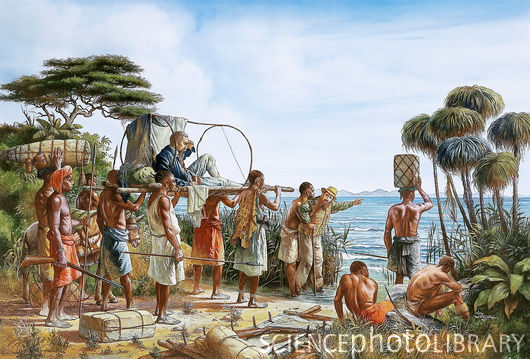
Richard Burton was a man of an exceptional range of interests and achievements; traveler, explorer, adventurer, soldier, and diplomat. Speaking 29 European, Asian and African languages, he was a linguist, ethnologist and orientalist, as well as a writer and translator. Always outspoken, notorious for his interests in all matters of sexuality, never one to conform to conventional rules of social behavior, and, for what is known, possessed by an irascible temper, he was surrounded by rumors of scandal and violence, and thus never was promoted to military or diplomatic rank that would have fully matched his merits. Richard Burton was born on March 19th, 1821, in Devon, as son of a British army officer and his wealthy wife; during Richard Burton’s childhood and youth, the family traveled between England, France and Italy, during which time Richard Burton learned French, Italian, Latin, and several local dialects. In 1840 Richard Burton enrolled in Trinity College at Oxford, from where he was expelled two years later.
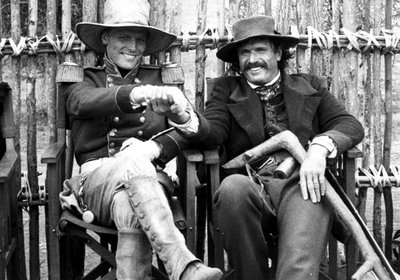
—How did Bob Rafelson, the director of small-scale American studies such as Five Easy Pieces and The King of Marvin Gardens, find himself helming an old-fashioned adventure story such as Mountains of the Moon? Whatever the reasons, Rafelson invested this 1990 epic with passion and professionalism. The hero is one of the greatest British explorers of the 19th century, Sir Richard Burton (played by Patrick Bergin), a fascinating figure and a man out of time: a modern in the Victorian era. Mountains of the Moon is primarily concerned with Burton’s trek into East Africa to discover the source of the Nile, accompanied by fellow adventurer John Hanning Speke (Iain Glen). Rafelson is at least as interested in the tricky psychological jockeying between the two men.
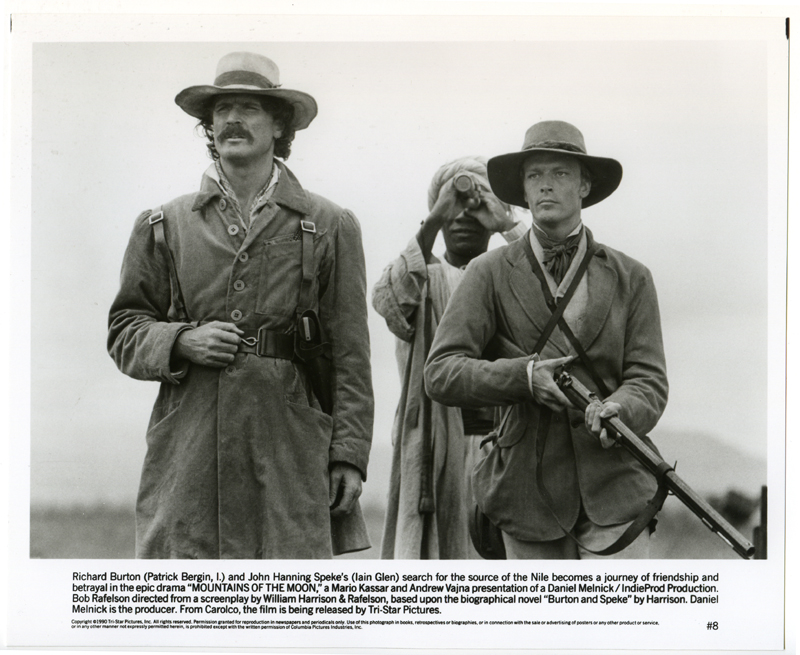
Here is not the place to describe in any detail the adventurous life on which Burton then embarked; it included military service in India (1842–49), a pilgrimage to Mecca and Medina disguised as a Pakistani Muslim pilgrim (1853), an expedition to Ethiopia where he was the first European to enter the town of Harar (1854), army service in the Crimean War (1855), together with John Hanning Speke an expedition, funded by the Royal Geographic Society, into the depths of unexplored Central Africa, (1858), a travel to America (1860), and, after entering the Foreign Service, appointments as Consul to Fernando Po (Equatorial Guinea) from where he 5 explored the West African coast (1861), to Santos in Brazil (1865), to Damascus (1869) and finally to Trieste (1873); he was awarded knighthood (KCGM) in 1886.
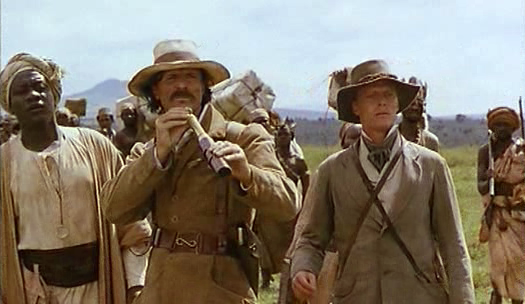
In 1851 Richard Burton had met his future wife, Isabel Arundell; they married in 1861. During all his life, Richard Burton used every opportunity to study not only languages, but also people and their cultures, and he wrote extensively about his travels and his studies, some 40 books and hundreds of magazine articles. In addition, he created translations of erotic literature, namely The Arabian Nights, the Kama Sutra, and The Perfumed Garden, at his time considered pornography. To be able to publish them without risking jail, he founded a private society, the Kama Shastra Society, for whose members these books were exclusively printed. Boldly defying conventional restraints and perceptions, he was nonetheless not free of his own prejudices, rash judgments and obscure notions.
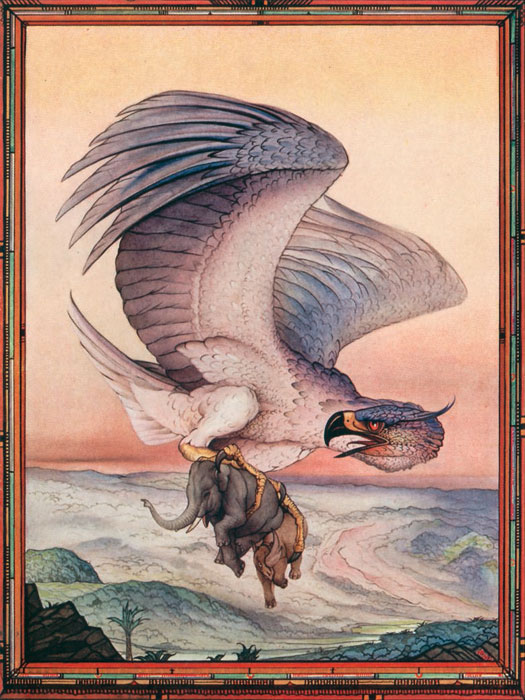
But on reading The Book Of The Thousand Nights And A Night, there is no doubt how much we owe to Richard Burton’s dedication, matched by his knowledge and his literary skills, to present us with a sweeping and authentic view of this huge timeless treasure, rescuing it from the confinements of the Victorian morals of his age. Richard Burton died in Trieste on October 20th, 1890, of a heart attack.
Isabel, who survived him for several years, never recovered from the loss. She, herself a writer, had been (in his own words) her husband’s “most ardent supporter,” and assisted him with many of his writings. After his death though, believing to act in his interest, she burned many of his papers and unpublished manuscripts, among them a new translation of The Perfumed Garden called The Scented Garden, which she herself regarded to have been his “magnum opus” — a work that is now lost to us. The couple is buried at Mortlake, Surrey, in an elaborate tomb in the shape of a Bedouin tent.
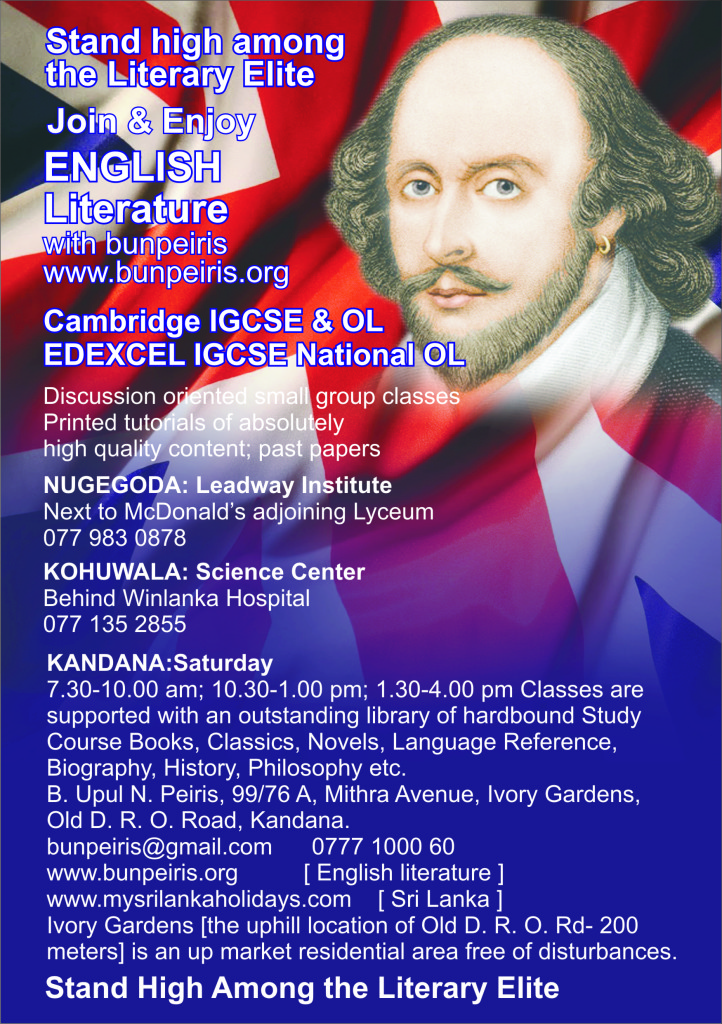
Cambridge OL English Literature bunpeiris

